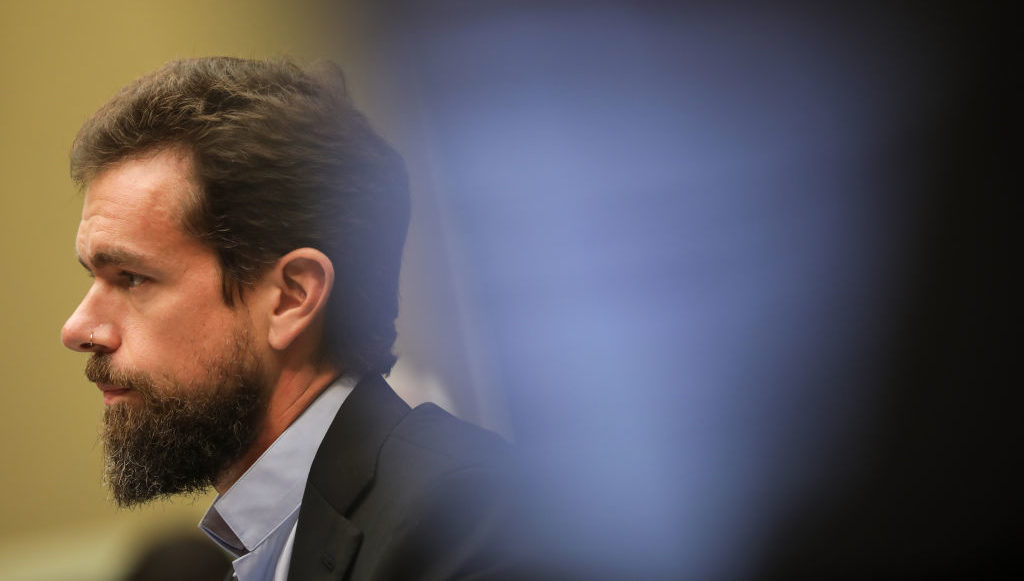When Jack Dorsey, CEO of social media giant Twitter and mobile payments company Square, announced he’ll be spending up to half a year in Africa on Nov. 27, a chorus of criticism erupted calling his move “ill-advised.”
Scott Galloway, Twitter shareholder and New York University marketing professor, even wrote a letter to the board calling for the resignation of the “part-time CEO.”
But for anyone who’s been paying attention to what has been going on in Africa in the digital payments space, the decision to make a long-term trip there is hardly surprising.
“Africa will define the future (especially the bitcoin one!),” Dorsey tweeted before departing the continent. “Not sure where yet, but I’ll be living here for 3-6 months mid 2020.”
Twitter declined to comment further on the exact location and scope of his activities there, but we do know he visited Nigeria, Ghana and Ethiopia from Dorsey’s Tweets. In Ethiopia he attended a Bitcoin and Blockchain meetup and went to a pitch event at blueMoon Ethiopia, the country’s first youth agritech incubator. He made time to meet with young entrepreneurs working on a smart beehive solution, Blockchain voting and an enterprise that converts recycled bags into shoe polish.
Digital Payments Pioneer
The Twitter CEO is not alone in paying attention to Africa’s startup ecosystem, especially when it comes to digital payments.
It’s worth recognizing that the latest wave of Western founders and investors are not “discovering” Africa: innovation has been happening there for years, even outpacing the U.S. in areas like mobile payments.
“East Africa was a world pioneer in digital payments. They were much more accelerated than the U.S., for example,” says Esther Pan Sloane, head of partnerships, policy and communications at the United Nations Capital Development Fund, which has been working on financial inclusion for 50 years. “I don’t use my phone to pay for stuff, but in Rwanda they use phones to pay for bus tickets.”
M-Pesa, the big mobile transfer success story, launched more than 10 years ago.
More recently, a growing number of high-profile investors have been increasing the size of their investments and expanding their physical presence there.
French VC firm Partech doubled the size of its Africa fund earlier this year, determined not to miss the boat the way they did in China in the 2000s.
Economic growth and regulatory progress in some African countries is fueling investor interest.
African Development Bank’s (AfDB) projects the continent’s economic growth will accelerate to 4.1% in 2020 from 3.5% in 2018 and 4% in 2019, according to its 2019 African Economic Outlook report.
The fintech space has been growing in Africa at a rapid pace of about 24% over the last 10 years, according to E&Y, fueled by demographics and high mobile penetration rates.
Nigeria’s central bank is looking to issue more licenses to payment providers in an effort to boost innovation, foster financial inclusion and develop a “robust payment infrastructure and an expansion of agent locations across the country,” according to the central bank governor.
“Africa is a fantastic crucible for innovation. There are amazing ideas coming out of the continent.”
“We are, of course, very keen to see policies that help payment providers drive more financial inclusion in Nigeria,” Tidjane Dème, Senegal-based general partner at Partech, told Karma. “Our investment in Kudi is a bet on the fact (that) there is a huge unmet demand for access to affordable and financial services in Nigeria.”
Nigerian fintech startup Kudi aims to “bridge the gap between the cash-economy and the banked economy,” Dème said.
Dan Dolev, Macquarie’s senior payments analyst, said the region represents the “future of payments, calling Twitter founder’s plans “very forward-thinking,” CNBC reported.
Regulatory Concerns
Social media rivals including Facebook have also announced plans to deepen their presence globally and reach the underbanked with initiatives like Libra, raising concerns about the motives of big tech companies on foreign soil.
“I think it’s a big challenge for governments to think of regulating these giant actors who are essentially accountable to nobody, coming into non-mature markets with unsophisticated consumers, being offered a Bitcoin,” says Pan Sloane. “It raises a lot of serious regulatory questions for governments, how much space they’re going to give to private sector actors who don’t have the best record on consumer protection or well-being of the customer.”
She notes each of the governments has to question the motives of these companies, which may not have anything to do with their plans as a government, their national development strategy, their SDG strategy or the Paris Climate goals.
Still, many entrepreneurs in Africa are excited about Twitter CEO’s plan to spend more time there.
“I think it would be great if he will be spending some time mentoring and investing in interesting startups doing amazing stuff,” says Abdulhamid Hassan, Nigeria-based co-founder at Voyance, told Karma. “His contribution to the ecosystem is what I’m particularly looking forward to.”
Voyance is an Artificial Intelligence-based solution that helps enterprises prevent online fraud.
Dorsey’s plans for Africa may be vague at this point, but he is not wrong to pay attention to what is happening on the ground.
“Africa is a fantastic crucible for innovation. There are amazing ideas coming out of the continent,” Pan Sloane told Karma. “There is amazing potential and if the regulatory and finance environment is right, I think you can see really terrific advances.”






















